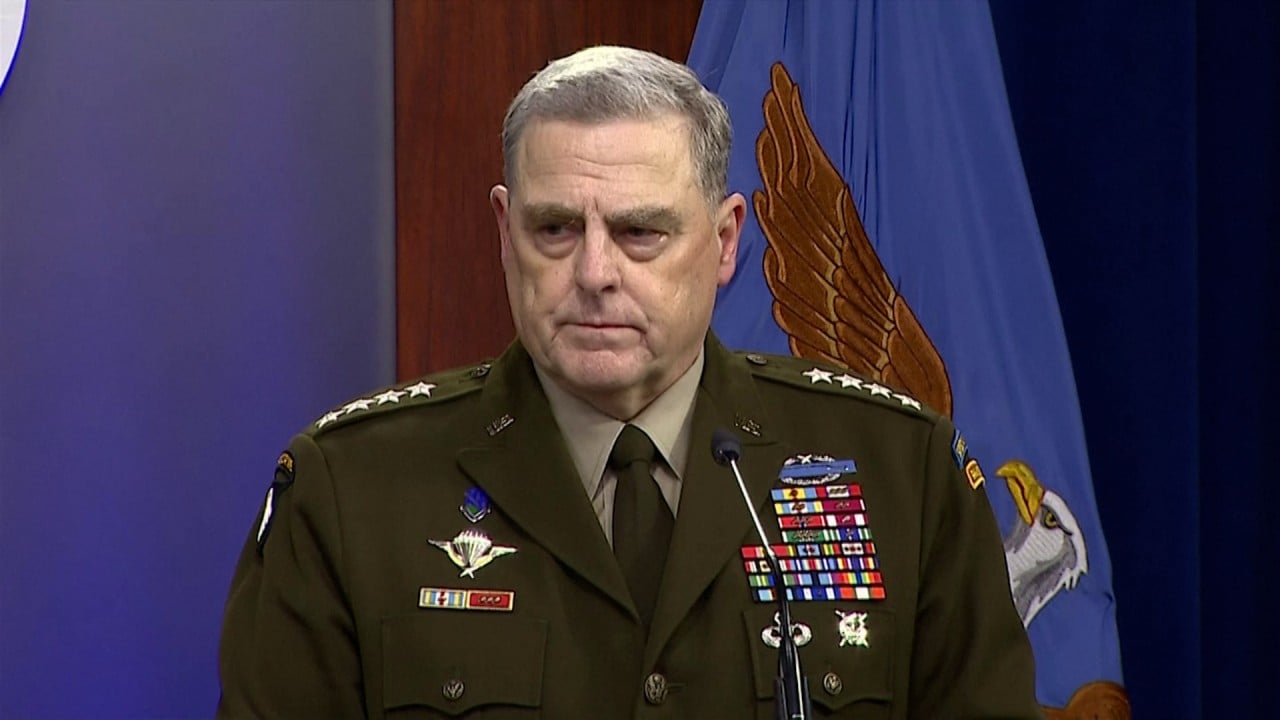
US VP Kamala Harris holds talks with Singapore’s PM Lee on first day of Asia trip
- Harris was presented with an orchid that was named in her honour and spoke with the president before starting a series of bilateral meetings with PM Lee
- The US vice-president arrived in Singapore on Sunday at the start of a seven-day visit to the region, which will also include a trip to Vietnam
Lee then showed her a species of an orchid that was named in her honour, and Harris participated in a brief courtesy call with President Halimah Yacob, before heading into a series of bilateral meetings with the prime minister.
Harris and Lee later announced new initiatives including a high-level supply chain dialogue and agreements on cybersecurity and climate, all aimed at bolstering the economic and security relationship.
Harris and Lee held a restricted meeting to talk candidly, a senior official said, before they opened up the meeting to their staff members.
Harris was later on Monday set to visit the Changi Naval Base, where she will speak to American sailors aboard the USS Tulsa, a combat ship.
On Tuesday, Harris will deliver a speech outlining the Biden administration’s vision for the region, and meet with business leaders to discuss supply chain issues.
The trip marks Harris’ second foreign trip – she visited Guatemala and Mexico in June – and will be the first time a US vice-president has visited Vietnam.
US committed to ‘constructive, stable’ ties with China, defence chief says
Alexander Feldman, president and CEO of the US-Asean Business Council, said Harris would have to be careful in her conversations with Singapore’s leaders not to focus too heavily on China, but to emphasise a positive, productive US relationship with Singapore and Vietnam.
“Where she could fall into a trap is really trying to pit this as a US versus China trip. it should be a US trip to our friends and partners in Southeast Asia,” Feldman said.
If China becomes the main focal point, he said, “that makes it harder for our friends to move forward across the region, not only in Singapore and Vietnam but beyond that”.
US and China spar over ‘biggest threat’ in South China Sea
Chong Ja Ian, a political scientist at the National University of Singapore, said: “Leadership in the two countries are likely to be careful to avoid creating impressions that Beijing may find reason to be antagonistic about.”
Indeed, Singapore Foreign Minister Vivian Balakrishnan said in a recent interview that Singapore will “be useful but we will not be made use of” in its relations with both countries, and the nation’s prime minister previously warned the US against pursuing an aggressive approach to China.

02:08
Intelligence failed to predict Afghanistan’s rapid collapse, says US top military officer
Beijing, however, has seized on the visit, with China’s official Xinhua news agency issuing an editorial on Saturday on Harris’ trip portraying it as part of a drive to contain China.
Visits to Southeast Asia by senior Biden officials are aiming to “woo these countries to form a ring of containment against China. But Southeast Asian countries are reluctant to choose sides between China and the United States, and America’s ‘wishful plan’ will end in failure”, Xinhua said.
The US approach is based on “outdated Cold War thinking and is intended to provoke troubles in their relations with China, create division and confrontation, and try to create a ring of containment”, the editorial said.
Are cosier Cambodia ties a sign China wants to set up military bases overseas?
While Harris navigates the challenging diplomacy surrounding the issue of China, she’ll also face the task of reassuring key US allies of America’s commitment to Southeast Asia, in the wake of the tumultuous Afghanistan exit.
Images of desperate Afghans mobbing American plans leaving Kabul have drawn comparisons to images from the fall of Saigon at the end of the Vietnam war.
Harris’ aides have been careful to emphasise that while she remains deeply engaged on the situation in Afghanistan, the Southeast Asia trip was planned well before the recent events, and they say Harris’ work in Singapore and Vietnam is important independent of the developments in Afghanistan.
Curtis Chin, Asian fellow at the Milken Institute and former US Ambassador to the Asian Development Bank, said the US needed an “all-in pivot to Asia including a business pivot, and Singapore and Vietnam can be key partners in that effort”.
“Restoring trust and confidence in US steadfastness and staying power though must come first,” Chin said.
Additional reporting by Reuters





